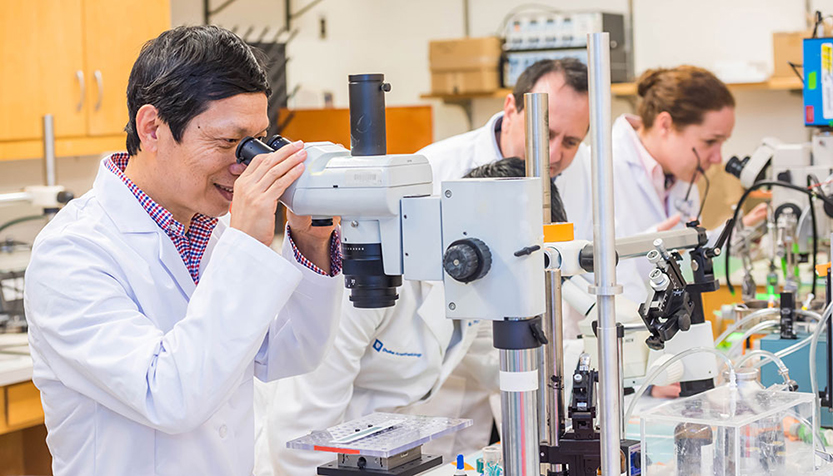
The Center for Perioperative Organ Protection (CPOP) conducts basic, pre-clinical, translational, epidemiologic, and clinical research on topics that include:
- Molecular, cellular and physiologic processes that contribute to perioperative organ dysfunction
- New techniques in bioelectronic medicine that stimulate specific neuronal networks to control organ function
- New methods to measure psychological and environmental risks associated with organ injury
- Novel therapies that are based on characteristics of individual patients
CPOP provides a collaborative scientific and clinical environment that supports laboratory-based, clinical, bioinformatics, and epidemiologic research with the opportunity to:
- Perform laboratory-based biologic and genetic testing
- Discuss study design, analytic methods, recruitment strategies, and expected or unexpected study findings with leading experts
- Screen and enroll research subjects
- Administer questionnaires and study procedures
- Conduct physical examinations and specialized testing
- Collect and distribute biospecimens
- Monitor subject behavior and safety
- Collect and enter study data
- Access and analyze study data
- Work in a collaborative environment that is supported by NIH funding for both research training (T32) and collaborative research efforts (multiple PI grants and PPGs)